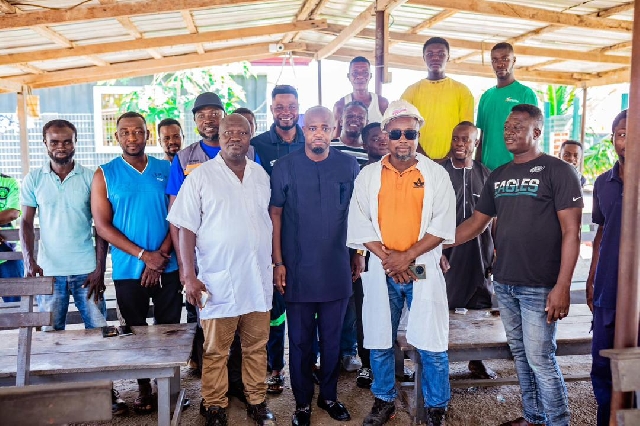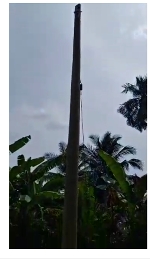NPA CEO engages tanker drivers in Western Region, unveils measures to address industry challenges
 NPA CEO in a group photograph with Western Region tanker drivers
NPA CEO in a group photograph with Western Region tanker drivers
The Acting Chief Executive Officer of the National Petroleum Authority (NPA), Godwin Edudzi Tameklo, has embarked on a working visit to the Western Region, where he held a productive engagement with tanker drivers and other stakeholders in the petroleum downstream sector.
The meeting, held at the Takoradi depot, forms part of his broader stakeholder engagement strategy aimed at understanding the operational difficulties faced by industry players across the country.
During the interaction, Mr Tameklo expressed appreciation for the critical role tanker drivers play in ensuring the safe and efficient transportation of petroleum products nationwide.
Mr Tameklo also stated that with the approval of the board, the Authority will implement the Driver Remuneration Formula to address the concerns of tanker drivers on their wages.
He acknowledged the numerous challenges they face, including poor road conditions, high operational costs, and safety concerns at loading terminals.
Among the strategies outlined by the Acting CEO were the rehabilitation of key access routes to depots, the review of safety standards and loading protocols, and the introduction of digital tracking systems to enhance transparency and accountability in fuel distribution.
Mr Tameklo further announced plans to strengthen collaboration between the NPA and relevant government agencies to ensure the timely resolution of infrastructural bottlenecks affecting tanker operations.
The engagement was warmly received by the drivers, who expressed optimism about the NPA’s renewed commitment under Mr Tameklo’s leadership.
They urged the Authority to maintain consistent dialogue with transport unions and ensure that promises made translate into tangible improvements.
The visit underscores the NPA’s resolve to build stronger relationships with frontline industry players and to safeguard the integrity of Ghana’s petroleum supply chain.
Source: Classfmonline.com/Cecil Mensah
Trending Business

Plastic prices to increase by 7% from July 1 due to new excise tax – GPMA announces
12:01
GIPC CEO backs deployment of investment officers in District Assemblies
10:12
SIC Insurance PLC inaugurates new board of directors
09:25
Ghana Gold Board fully implements new licensing regime to curb illegal gold trade
01:08
Ghana bags $3.9bn Chinese investment in ten years- GIPC CEO hints
14:34
Oti Regional Minister confirms economic shutdown in Nkwanta amid renewed tribal clashes
12:06
Gov't operationalises 24-hour economy today
04:51
Agric Minister secures FAO support to deepen agricultural transformation agenda
11:23
CEMSE boss slams PURC over sudden 2.45% tariff hike
11:15
Akyem Maase residents protest GH¢13,000 demand by ECG after power outage
10:28



